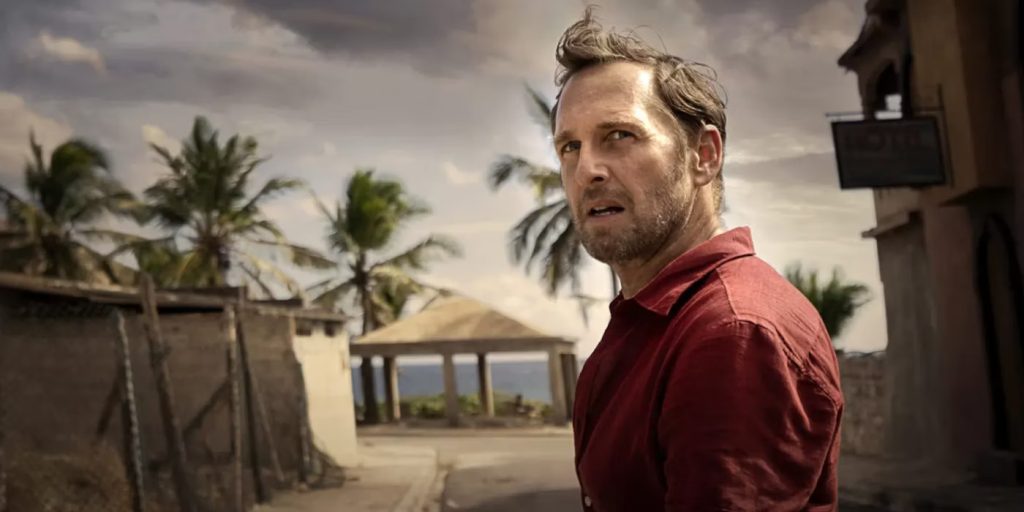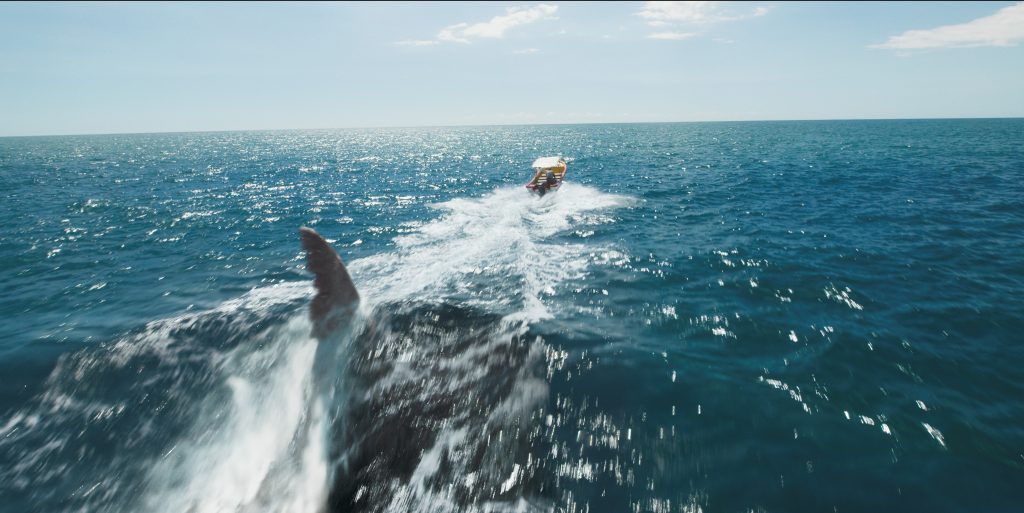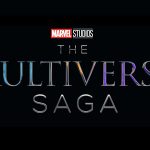With a story that combines the mythology of the Tlāloc and the way some oil companies poorly treat the environment, The Black Demon has splash landed to give viewers a shark movie experience like no other! STARBURST catches up with actor Josh Lucas (Yellowstone) to discuss his character Paul, the environmental depth of the plot, and what it was like to work with director Adrian Grünberg (Rambo: Last Blood)…
STARBURST: With the mythology about the shark, combined with how oil companies cause damage to the environment, what kind of research did you do before working on The Black Demon?
Josh Lucas: Research is often my favourite part of the process. It’s strange. What happened was right around the time of the Trump administration coming into office, they actually did a really interesting thing around the areas of Baja and certain parts of Mexico, where they allowed these small oil rigs to be constructed at high speed, and so that part of the story is actually based in factual truth. They were done without a lot of regulation from any government. So that’s the genesis of the idea, and then the Black Demon itself. The mythology is that the shark has been haunting the waters of Mexico; there’s been writing about it for 100s of years. I don’t want to take anything away from it because there’s definitely mythology or folklore that there’s this giant shark that’s caused a lot of terror, particularly in fishermen’s lives out in Baja and that crazy beautiful area. Some people say that it’s just a whale shark, they have some images of it, but I’ve seen some pretty interesting documentaries where they interview fishermen who are truly terrified, you can see it. So it was kind of an interesting thing to see the truth and put it together with the idea of the oil rig. Make a movie that had some complexity in terms of what it was asking about climate change and politics, and all of that at the same time.

Adrian Grünberg has worked on some really great movies. Could you tell us about what he was like to work with and, maybe, what he wanted to see from your character?
Adrian is a force of nature. I got a call from somebody who I really love and respect in my life and have worked with for a very long time, and they know Adrian. They said, “Hey man, this is a really interesting filmmaker, to say the least.” Because he was a first AD, he worked extensively with people like Peter Weir and, obviously, Mel Gibson multiple times on really epic, complicated projects that were very difficult to shoot. First ADs oftentimes have a much more important role in film-making than people realise, and great film-makers rely on them pretty extensively. I worked with this guy called Adam Somner, who is basically on staff for Spielberg at all times, to look at his movies. I worked with him on Ford V Ferrari, and James Mangold tried to steal them, and I think he has now done a number of films with Mangold. You realise he is really not running the show by any means, but the first AD has such a, oftentimes, they’re directing all of the extras, and they’re directing so much of what’s going on, to help the director out. So I knew that Adrian had this extensive background in film, working with great directors. We just bonded pretty quickly over our love of film and our love of throwing ourselves into it. Trying to do something that, in this case, was very difficult because we were shooting in a tank in the Dominican Republic, had a very limited budget, and didn’t know what the shark was going to be at all. It was way off in the distance in terms of the CGI of it all, and trying to make a movie that was alive in many ways, visually, with such limited resources. He is an electrifying guy to work with. He is one of those guys who is crazy passionate about what he is doing, and he is pushing everybody hard. He is out there himself. He was the first one in the water every day. He is the first one in a diving suit. He is also a really wonderful guy to be around. Then we had an idea of trying to take, the script evolved and changed once Adrian and I really started talking about it, to try and make it have some of the climates, about politics, mythology, all of those different things. Adrian is Mexican, and he very strongly has a deep interest towards the mythology of Tlāloc, and this God that I didn’t know much about, and how prominent it is in Mexican folklore, and to try and bring that into the script. I just genuinely love that guy.

We really enjoyed the scene where you confirm that you’re covering for the oil company, it kind of throws you. What does this twist do for the movie?
The hard thing about the character was that, in a way, he is complicit, or he is guilty from the very beginning, and I think he knows it. That’s one of the things that get into the politics of it, right, the idea that there are people who are involved in these big American corporations who are turning a blind eye to the destruction that they’re doing in other parts of the world. They can get away with it because they don’t see it first-hand. So I think that it was trying to basically know that he had that somewhere inside of him, but that he had justified it. I think characters are always interesting when they, in a way, have a dark hidden secret. He was also a really good dad. He is a good husband. He is not a bad man by any means, and he doesn’t see himself like that, but I think if you’re doing something like what he is doing, he is inherently, like I say, complicit. He deserves to have the karma of whatever would happen in that situation. I think that’s what is so interesting about these big, behemoth American corporations that do that global damage.
The shark in this movie is pretty interesting! It can make you hallucinate to start with. How do you think this particular shark compares to any of the other sharks that have come before it, whether it be Jaws or, more recently, The Meg/The Shallows?
One of the things that Adrian brought to it was the idea of really throwing in the mythology and throwing in the idea that, when you watch the documentaries of these fishermen talking about this shark, there is this strange, dream-like or trance-like fear that they seem to have of this thing. And look, no one has actually ever seen it, right? That’s the other thing about it, so it exists kind of as a boogeyman, or as a monster, and it exists more in these fishermen’s – in the real truthful legend or mythology of it – it exists more in their dreams, or in their fears more than it does in reality. So that’s a really interesting thing. For so many people, obviously, because of Jaws, we terrorise, or mythologise sharks, imagine the amount of energy or fear that’s gone into swimming since the movie Jaws came out, and in reality, as we all know, it’s incredibly rare that you’ll get into trouble with a shark. I think your chances of being eaten by an alligator are much higher! But I do think sharks, in a way, exist more in our minds than they do in reality, as much as the danger of them exists.
The Black Demon is out on digital on June 19th and is released on DVD and Blu-ray from July 17th.







